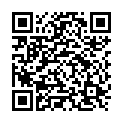|
|
|
| Module code: MST203 |
|
4V+2U (6 hours per week) |
|
6 |
| Semester: 2 |
| Mandatory course: yes |
Language of instruction:
German |
Assessment:
Written exam
[updated 24.07.2012]
|
MST203 Mechatronics and Sensor Technology, Bachelor, ASPO 01.10.2005
, semester 2, mandatory course
|
90 class hours (= 67.5 clock hours) over a 15-week period.
The total student study time is 180 hours (equivalent to 6 ECTS credits).
There are therefore 112.5 hours available for class preparation and follow-up work and exam preparation.
|
Recommended prerequisites (modules):
MST103 Mathematics I
[updated 24.07.2012]
|
Recommended as prerequisite for:
MST302 Mathematics III
MST401 Applied Mathematics
MST403 Fundamentals of Mechatronic Systems
[updated 02.08.2012]
|
Module coordinator:
Prof. Dr. Barbara Grabowski |
Lecturer: Prof. Dr. Barbara Grabowski
[updated 01.10.2005]
|
Learning outcomes:
This course of lectures aims to teach students the basic mathematical skills, particularly in the field of analysis, that are needed to understand the subjects covered during phase I of the bachelor programme and the specialist subjects treated in phase II.
[updated 24.07.2012]
|
Module content:
1 Real functions of a single variable
1.1
Definition, properties (symmetry, monotony, boundedness, roots)
1.2
Inverse functions, translation and rotation
1.3
Polar and spherical coordinate systems, parametric representations
2 Number sequences
2.1
Definition, properties (monotony, boundedness, alternating sequences)
2.2
Convergence and accumulation points, limit theorem
3 Limits and continuity of functions
3.1
Limit theorems, continuity
3.2
Poles and asymptotes
4 Special elementary functions and their properties
4.1
Polynomial functions
4.2
Rational functions and partial fraction decomposition
4.3
Algebraic functions and root equations
4.4
Exponential and logarithmic functions
4.5
Trigonometric functions
4.6
Hyperbolic and area functions
5 - Differential calculus
5.1
Derivative of a function, differential quotient, tangents and the total differential
5.2
.Rules of differentiation
5.3
.Applications of differentiation
6 Integral calculus
6.1
Definite and indefinite integrals
6.2
Techniques of integration
6.3
Numerical integration
6.4
Improper integrals
6.5
Applications of integral calculus
7 Series
7.1
Fundamental definitions, properties
7.2
.Convergence criteria for series (root test, ratio test, ...)
7.3
.Power series (radius of convergence and range of convergence)
7.4
.Taylor series (Taylor series expansions of selected functions and estimation of remainder terms)
7.5
.Continuity, differentiability and integrability of series expansions of functions
[updated 24.07.2012]
|
Teaching methods/Media:
Lectures, problem-solving sessions
[updated 24.07.2012]
|
Recommended or required reading:
1. L. Papula: "Mathematik für Ingenieure", Band 1-3 und Formelsammlungen, Vieweg, 2000
2. Engeln-Müllges, Schäfer, Trippler: "Kompaktkurs Ingenieurmathematik". Fachbuchverlag Leipzig im Carl Hanser Verlag: München/Wien, 1999.
3. Brauch/Dreyer/Haacke, Mathematik für Ingenieure, Teubner, 2003
Materials
1. http://www.htw-saarland.de/fb/gis/people/bgrabowski/vorles/mathe.htm
(only accessible from within the university)
2. http://www.htw-saarland.de/fb/gis/mathematik/
[updated 24.07.2012]
|


